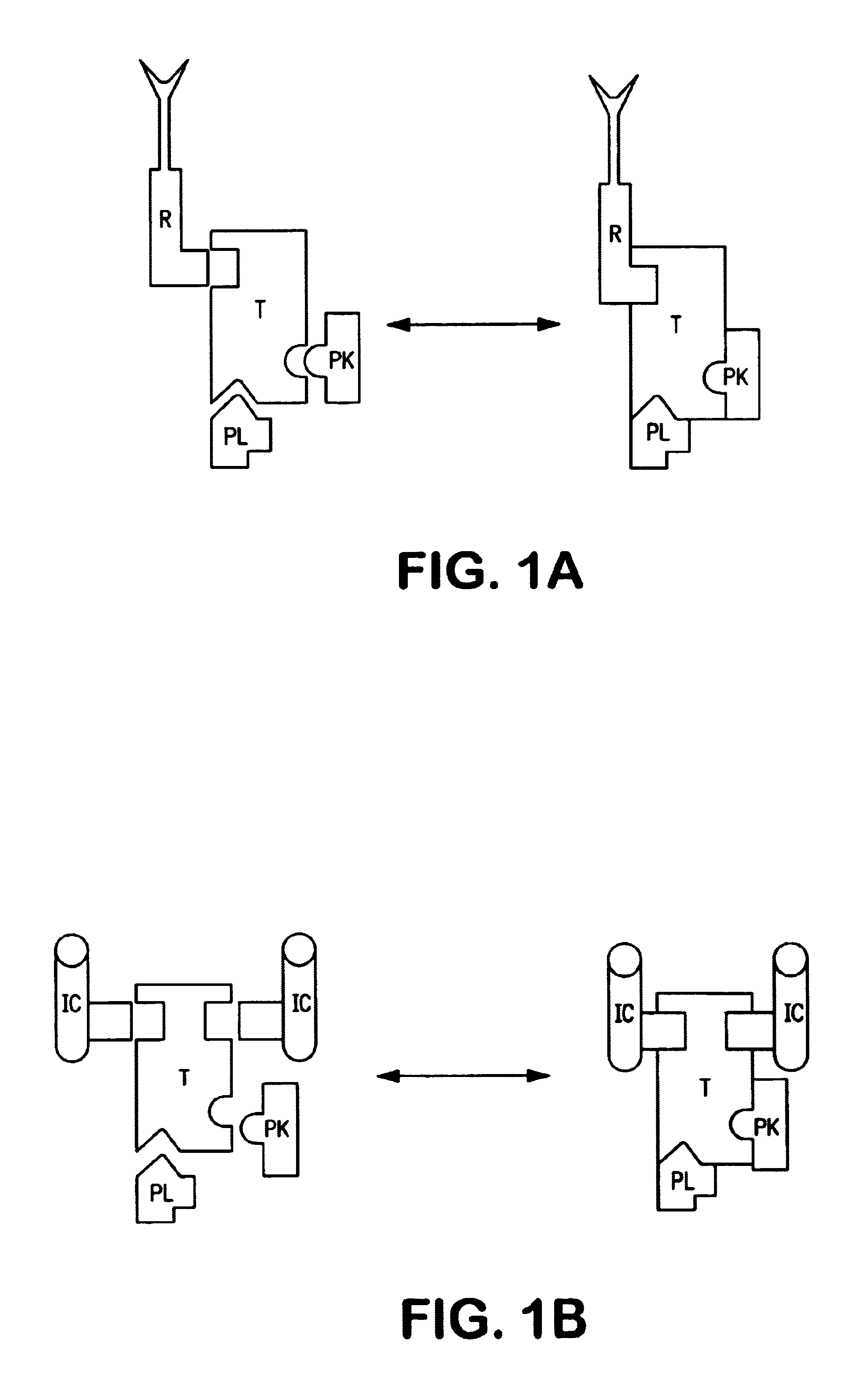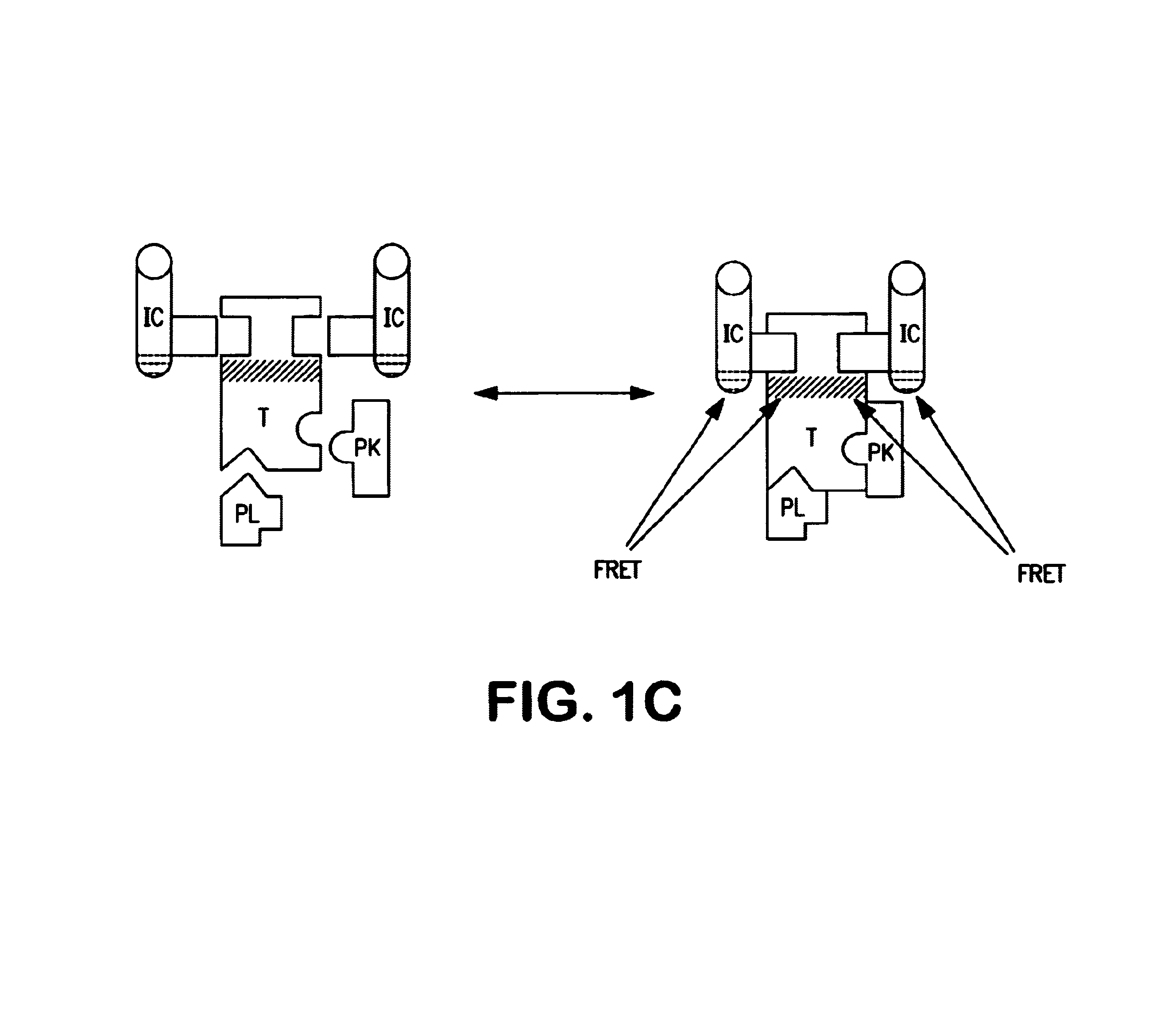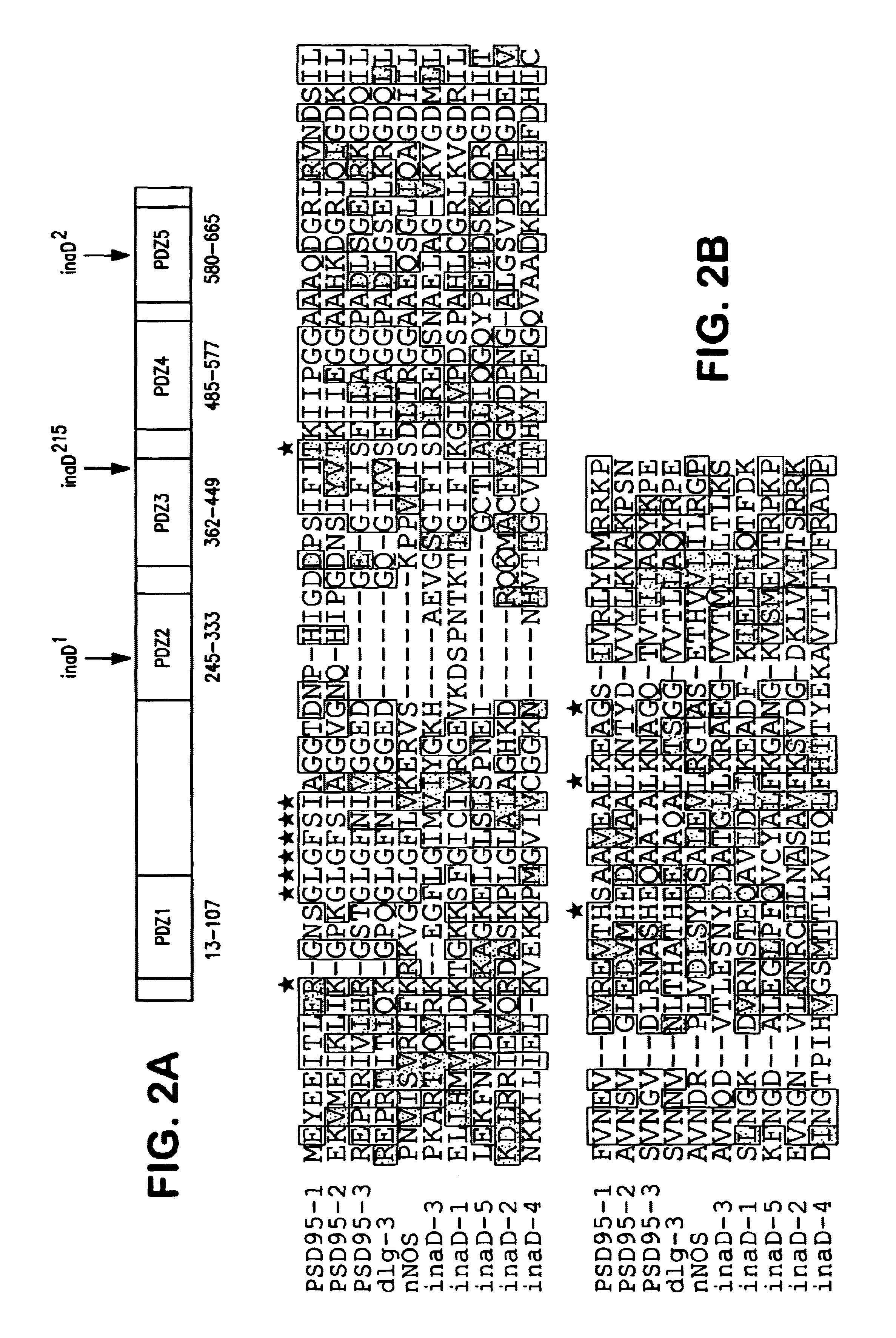Compositions and methods for identifying modulators of transducisomes, a new class of therapeutic targets
a technology of transducisomes and modulators, applied in the field of compositions and methods for identifying modulators of signal transduction in cells, can solve the problems of reducing the specificity of signal, affecting the normal function of receptors when heterologoly expressed, and affecting the normal function of receptors, so as to avoid signal cross talk, enhance signal response time, specificity and selectivity
- Summary
- Abstract
- Description
- Claims
- Application Information
AI Technical Summary
Benefits of technology
Problems solved by technology
Method used
Image
Examples
example 1
Materials and Methods Used in the Examples
Mutant Screens and Western Blots
[0141]Males of cn bw genotype were aged for 5 days, treated with EMS, and crossed en masse to flies carrying the dominant temperature sensitive DTS91 allele. Single F1 males were collected and crossed in single vials to CyO / DTS91 virgin females. The vials were then shifted to 29° C. for 72 hrs to eliminate any eggs or larvae carrying the DTS allele. The parents were then removed and the vials were incubated at 29° C. for an additional 48 hrs before returning to 25° C. The progeny from this cross were transferred to fresh food, and their homozygous white-eyed offspring (cn bw) were subjected to a protein immunoblot screen for the loss of the INAD antigen33.
Antibodies
[0142]To generate antibodies specific to INAD, we generated a T7-fusion protein consisting of the last 300 residues of the protein. All antibodies were checked for specificity and affinity using wild type, mutant, and transgenic controls. For immuno...
example 2
Exemplary Transducisome Structure
[0146]To investigate a putative transducisome and its structure, the inventors analyzed the protein structure of INAD (SEQ. ID NO.: 1). INAD was selected as a candidate transducisome because mutants in the gene, InaD, produce a dominant negative phenotype for photoreceptor activation. The primary structure of INAD was analyzed using BLAST. INAD is a modular protein composed of five closely linked PDZ domains (see FIG. 2). Each of these domains contains the structural hallmarks of a prototypical PDZ motif, including the conserved amino acid region target binding. Each PDZ domains, however, is different and displays sufficient differences in amino acid sequence to permit binding of different signal transduction proteins and to allow distinct protein-protein interactions. This finding was quite surprising, as previous studies had shown that INAD contains two PDZ domains instead of five.
[0147]FIG. 2A shows a diagram of INAD protein with the locations of ...
example 3
Transducisomes Organize Signal Transduction in a Membranes
[0150]To investigate the ability of transducisomes to organize signal transduction proteins in membranes, the inventors measured binding of signal transduction proteins to INAD. The inventors assayed for binding of different phototransduction cascade proteins to INAD. Immunoprecipitations and GST-INAD protein fusions were used to identify INAD binding entities or targets.
[0151]FIG. 3A shows that INAD antibodies co-immunoprecipitate TRP, eye-PKC and PLCβ from retinal extracts38. Rhodopsin and Gqafailed to immunoprecipate despite the fact that both proteins are extremely abundant in photoreceptor cells. Membranes prepared from the heads of wt flies (IP) or trp, norpA and inaC mutants were immunoprecipitated (100 ug) with anti-INAD antibody as described in Example 1. The immunoprecipitated proteins were separated by SDS-PAGE, transferred to nitrocellulose and separately probed with antibodies specific for TRP, PLC, eye-PKC, G al...
PUM
 Login to View More
Login to View More Abstract
Description
Claims
Application Information
 Login to View More
Login to View More - R&D
- Intellectual Property
- Life Sciences
- Materials
- Tech Scout
- Unparalleled Data Quality
- Higher Quality Content
- 60% Fewer Hallucinations
Browse by: Latest US Patents, China's latest patents, Technical Efficacy Thesaurus, Application Domain, Technology Topic, Popular Technical Reports.
© 2025 PatSnap. All rights reserved.Legal|Privacy policy|Modern Slavery Act Transparency Statement|Sitemap|About US| Contact US: help@patsnap.com



